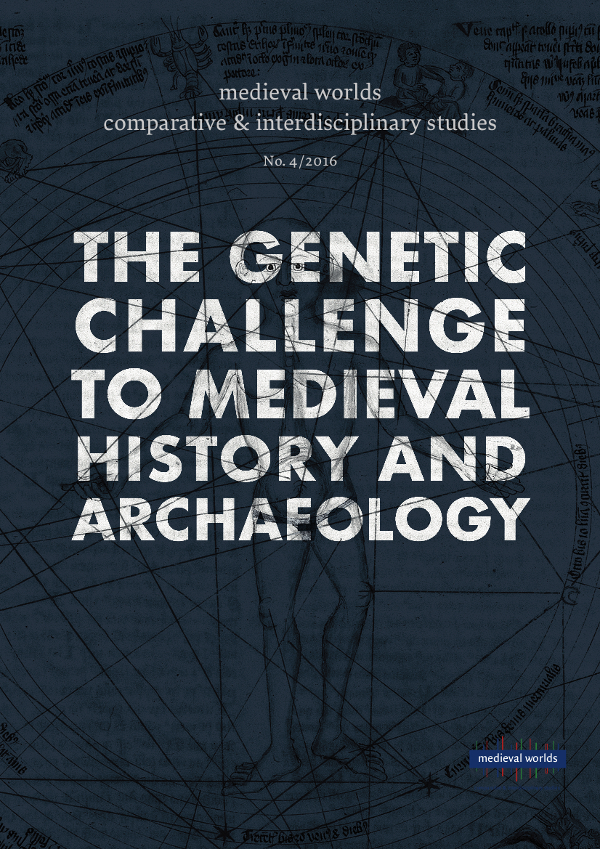 |
 |
Walter POHL – Andre GINGRICH (Eds.)
medieval worlds • no. 4 • 2016
medieval worlds 4 (2016)
Kerstin P. Hofmann
S. 91 - 122 doi: 10.1553/medievalworlds_no4_2016s91
Verlag der Österreichischen Akademie der Wissenschaften
Abstract:
As the field of genetic history has grown, academic interest in migration, peoples and ethnic identities has also grown apace. The people of the British Isles have been a focus of research in this area. Specifically, researchers have been fishing for Vikings in the gene pool. My paper begins, therefore, with some brief remarks on the etymology of the term »Viking«, its historical usage and the reception of Vikings in modern times. I address practices of naming as well as the role of romanticization and mythologization as constituents of the popular image of »the Vikings«. The discussion makes it apparent that the term »Viking« has a wide variety of associations and that behind the shared designation, which functions as a kind of semantic shorthand, lie many relationships that have yet to be studied. For that reason, in a second step, this paper outlines what are, in some cases, the greatly diverging conceptualizations of time, space, mobility and identity on which archaeological and genetic interpretations are based. I discuss in particular the problem posed by the essentialization of archaeological subjects as well as the »naturalization« of protagonists of historiographical narratives and their equation with historical actors. Finally, I address the dangers associated with identity politics, which go on both outside the academic discourse and within academia itself. Our duty now is to steer clear of mere battles over the prerogatives of interpretation. Instead, we must cultivate academic and political reflexivity, as well as mutual acceptance. Only by doing so will we be able to explore questions – and they are important questions – concerning the constitution and historicization of identities, interactions among migrations, mobility and identity, and about the relationships between biological and social reproduction.
Vikings; historiography; Britain; genetic history; archaeology Published Online:
2016/12/01 13:38:35 Document Date:
2016/12/01 13:01:00 Object Identifier:
0xc1aa5576 0x00348d19
Rights:All rights reserved.For questions regarding copyright and copies please contact us by email.
MEDIEVAL WORLDS provides a new forum for interdisciplinary and transcultural studies of the Middle Ages. Specifically it encourages and links comparative research between different regions and fields and promotes methodological innovation in transdisciplinary studies. Focusing on the Middle Ages (c. 400-1500 CE, but can be extended whenever thematically fruitful or appropriate), MEDIEVAL WORLDS takes a global approach to studying history in a comparative setting.
MEDIEVAL WORLDS is open to regular submissions on comparative topics, but also offers the possibility to propose or advertise subjects that lend themselves to comparison. With a view to connecting people working on related topics in different academic environments, we publish calls for matching articles and for contributions on particular issues.
Table of Contents
Walter POHL, Editor’s Introduction
Stefanie SAMIDA - Jörg FEUCHTER, Why Archaeologists, Historians and Geneticists Should Work Together – and How
Sebastian BRATHER, New Questions Instead of Old Answers: Archaeological Expectations of a DNA Analysis
Stefan BURMEISTER, Archaeological Research on Migration as a Multidisciplinary Challenge
Patrick GEARY - Krishna VEERAMAH, Mapping European Population Movement through Genomic Research
Manfred K. H. EGGERT, Genetizing Bantu: Historical Insight or Historical Trilemma?
Kerstin P. HOFMANN, With víkingr into the Identity Trap: When Historiographical Actors Get a Life of Their Own
Celine WAWRUSCHKA, Genetic History and Identity: The Case of Turkey
The journal is funded by the Austrian Science Fund (FWF).

|





 Home
Home Print
Print
 References
References
 Share
Share
